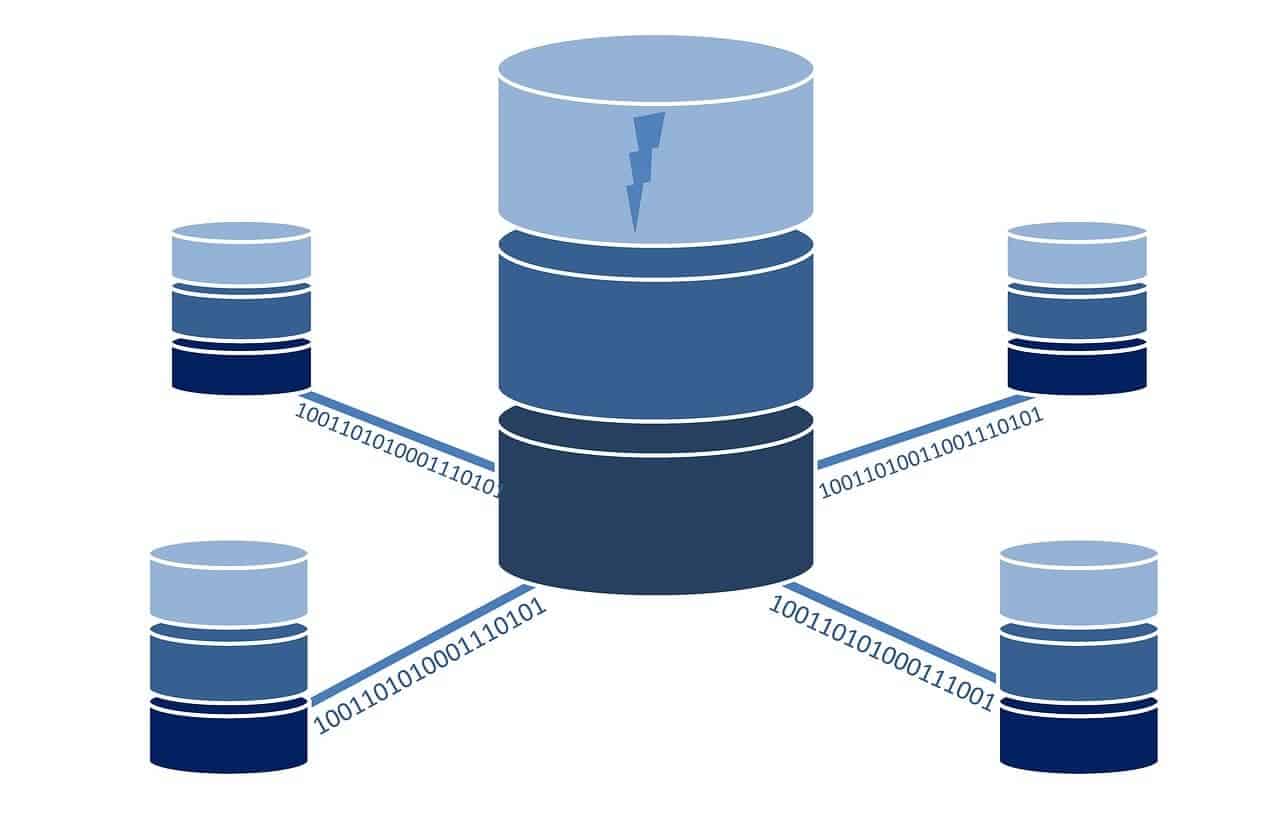Oracle database technology has existed for decades and remains vital to many organizations’ I.T. infrastructures. Oracle DBA and Oracle Developer are two career paths from this technology. Both careers require technical knowledge in the same field but differ significantly in their roles and responsibilities.
As an expert in the Oracle database world, I am frequently asked which is the best career path between an Oracle DBA and Oracle Developer. Choosing one over the other depends on individual preferences, skills, job market demands, growth opportunities, and compensation.
In this article, we will explore both career options to help those seeking clarity about their future professional aspirations or considering a transition within the industry. Whether you’re just starting your journey or already established in your role, read on to discover whether becoming an Oracle DBA or an Oracle Developer aligns with your long-term goals and ambitions.
The Roles And Responsibilities Of An Oracle DBA:
Oracle DBAs play a crucial role in maintaining and managing Oracle databases. They are responsible for ensuring these systems remain operational, secure, and efficient.
A career as an Oracle DBA can be quite financially and intellectually rewarding. Salary expectations for an Oracle DBA are generally high due to the specialized nature of the work involved. However, this has its challenges.
An Oracle DBA must be able to handle complex technical issues while also being able to communicate effectively with other members of their team. Additionally, staying up-to-date with the latest developments in database technology requires continuous learning and development from the Oracle DBA.
The Roles And Responsibilities Of An Oracle Developer:
The role of an Oracle Developer is essential to a successful database project, as they are responsible for developing and implementing applications that utilize Oracle databases. A key responsibility of an Oracle Developer includes project management, where they oversee the entire lifecycle of a project from conception to deployment.
They also work closely with other team members, such as business analysts and system administrators, to meet all requirements. Another critical aspect of an Oracle Developer’s job is database design. It involves creating logical and physical data models based on user requirements while ensuring scalability, performance, and security.
An effective Oracle Developer should have excellent technical skills in programming languages like SQL, PL/SQL, Java, or C++ and know software development methodologies like Agile or Waterfall. Also, strong communication skills can help them effectively communicate with stakeholders throughout the project lifecycle.
Moving forward into understanding what it takes to become an Oracle DBA requires additional insight into the specific skill sets required for this position.
Required Skills For An Oracle DBA:
Oracle Database Administrators are responsible for maintaining, configuring, and troubleshooting the Oracle database environment.
They must be well-versed in using SQL queries to access, manipulate and analyze data stored in the database.
Additionally, they must possess the knowledge and experience to design, manage and implement large-scale database systems.
Both Oracle DBA and Oracle Developer roles require similar technical skills. However, the DBA role focuses more on maintenance and performance optimization of the Oracle database environment.
Database Administration:
Database administration is a critical aspect of any organization that deals with large amounts of data. As an Oracle DBA, one must possess the required skills to ensure efficient management and optimal performance of databases.
One key area of expertise for an Oracle DBA is database security. It involves implementing measures to protect sensitive information from unauthorized access or breaches by hackers. Understanding encryption techniques, user permissions, and access control mechanisms is essential in ensuring adequate database security.
In addition to database security, performance tuning is crucial for an Oracle DBA. Performance issues can arise due to several factors, such as poor hardware configuration, inefficient SQL statements, or indexing problems. It’s the responsibility of the DBA to identify these bottlenecks and take appropriate measures to optimize the system’s performance.
By analyzing query execution plans, monitoring resource utilization, and fine-tuning memory allocation settings, an experienced Oracle DBA can achieve significant improvements in overall system performance. Ultimately, mastering database security and performance tuning will enable an Oracle DBA to provide invaluable contributions toward achieving organizational goals while keeping sensitive data secure from potential threats.
SQL Queries:
As an Oracle DBA, advanced SQL skills are fundamental in effectively managing and optimizing databases. Advanced SQL techniques such as subqueries, complex joins, and analytic functions allow efficient data retrieval, manipulation, and analysis. It’s essential to have a good understanding of these techniques to minimize the risk of common SQL mistakes that could adversely affect database performance.
One common mistake to avoid when writing SQL queries is using too many or nested subqueries. That can lead to poor query performance due to excessive resource utilization.
Another mistake is not properly utilizing indexing or improperly joining tables which can significantly increase query execution time. As an Oracle DBA, it’s crucial to understand how to optimize SQL statements by analyzing execution plans, avoiding inefficient queries, and taking advantage of indexing mechanisms provided by the database system.
By mastering advanced SQL techniques and avoiding common mistakes, an experienced Oracle DBA can ensure optimal database performance while delivering valuable insights from data analysis.
Required Skills For An Oracle Developer:
Oracle Developers are highly sought-after professionals who design, develop and maintain database systems using Oracle software. The role requires a strong understanding of SQL and PL/SQL programming languages and the ability to create effective data models for complex applications.
To become an Oracle Developer, one must possess a bachelor’s degree in computer science or another related field, such as information technology. Employers also require candidates with prior experience working with databases. Additionally, obtaining certification from Oracle is beneficial in demonstrating proficiency in their products and technologies. An Oracle Certified Professional (OCP) credential can provide developers with more significant job opportunities and higher salaries.
As per PayScale, the average salary of an Oracle Developer is $90k per year in the United States. However, this figure may vary depending on factors such as industry, location, years of experience, and level of expertise.
Moving forward to the next section about job market demand for oracle dbas, it is essential to note that while there is a high demand for skilled Oracle Developers in today’s workforce, there is also a growing need for talented Database Administrators (DBAs). In fact, according to the U.S. Bureau of Labor Statistics (BLS), employment of DBAs is expected to grow by 10% between 2019-2029 due to increasing reliance on data-driven decision-making across organizations. That highlights the importance of staying up-to-date with current trends and learning new skills to remain competitive in the ever-evolving tech industry.
Job Market Demand For Oracle DBAs:
Oracle DBAs and Oracle Developers are highly sought-after professions in the I.T. industry. Regarding salary comparison, an experienced Oracle DBA earns more than an Oracle Developer. In general, the salaries of a senior-level DBA can range from $100,000 to $200,000 per annum, whereas a developer’s salaries range between $80,000 and $150,000 per year. It is because the role of an Oracle DBA requires advanced skills such as database design, administration, performance tuning, backup, and recovery strategies, which require many years of experience.
The future outlook for the job market demand for Oracle DBAs appears promising due to their critical role in managing enterprise databases. As companies continue to rely on data-driven decisions and analytics tools for business operations, skilled professionals will always need to ensure the high availability and performance of mission-critical applications.
The emergence of cloud computing has also increased the demand for Oracle experts who can manage complex database systems across different environments, including public clouds or hybrid models. Therefore, individuals planning to pursue a career in this field have ample opportunities to grow professionally while earning a good income.
Job Market Demand For Oracle Developers:
The job market for Oracle developers has been thriving in recent years, with high demand resulting from the increasing use of database systems across multiple industries. This trend is expected to continue as more businesses realize the importance of managing their data efficiently and effectively.
As such, employment opportunities for those pursuing a career in Oracle development will grow steadily over the next decade.
A salary comparison between an Oracle developer and an Oracle DBA indicates that both careers offer competitive compensation packages. However, individuals pursuing a career as an Oracle developer may have greater earning potential due to the higher technical expertise required for this role.
Additionally, while both careers offer significant career progression opportunities, those choosing to become an Oracle DBA can expect to advance into senior-level positions faster than those in other I.T. fields due to the specialized knowledge required for success.
Growth Opportunities For Oracle DBAs:
The growth opportunities for Oracle DBAs are vast and varied. As an expert in this field, you can expect to be well-compensated for your skills and knowledge. The salary comparison between Oracle DBAs and developers shows that those working in database administration earn significantly more than their developer counterparts.
But it’s not just about money – there is also a strong demand for skilled Oracle DBAs now and into the future. With companies increasingly relying on data-driven decision-making, the role of the database administrator has become crucial. And with new technologies emerging, such as cloud computing and big data analytics, there will always be new challenges to tackle in this exciting career path.
3 reasons why becoming an Oracle DBA could lead to a greater freedom:
- 1. High earning potential: As mentioned earlier, Oracle DBAs earn more than developers.
- 2. Job security: The increasing reliance on data means job security is high for skilled professionals who manage databases effectively.
- 3. Opportunity for remote work: Many organizations allow employees to work remotely, giving you more flexibility regarding where you live and work.
These factors make becoming an Oracle DBA an attractive option for anyone looking to build a successful career in technology.
Growth Opportunities For Oracle Developers:
Future job prospects for Oracle developers are pretty promising. As businesses adopt technology and digital solutions, the demand for skilled database professionals increases exponentially.
Companies across all sectors require data management services, resulting in significant growth opportunities for Oracle developers.
Furthermore, there needs to be a clear winner regarding salary comparison between Oracle DBAs and developers. However, on average, an experienced Oracle developer earns slightly more than an experienced DBA.
Both roles offer lucrative salaries with ample room for negotiation based on experience and skills.
In conclusion, pursuing a career as an Oracle developer is undoubtedly worth considering due to the abundance of job opportunities and competitive compensation packages available in the field.
Conclusion:
The career paths of an Oracle DBA and an Oracle developer are both lucrative options for those interested in working with databases. An Oracle DBA maintains a database system’s stability, security, and performance. At the same time, an Oracle developer focuses on designing, developing, and implementing software applications that interact with the database.
To become a successful Oracle DBA or developer, one must possess specific skills, such as knowledge of SQL programming, proficiency in data modeling and analysis, excellent problem-solving abilities, and strong communication skills. The job market demand for both roles remains high due to the increasing reliance on technology in various industries.
Oracle DBAs can expect growth opportunities by advancing their skill sets into cloud computing and extensive data management. On the other hand, developers may advance their careers by pursuing specialized knowledge in specific industries like healthcare or finance.
Choosing between these two careers depends mainly on individual preferences and interests. In conclusion, whether you pursue a career as an Oracle DBA or developer, both offer promising growth opportunities within the ever-evolving world of technology.
To succeed in either role, remaining committed to continuous learning and staying up-to-date with new technologies is crucial. As experts in this field would agree – investing effort towards mastering your craft will inevitably lead to success regardless of your path!






















